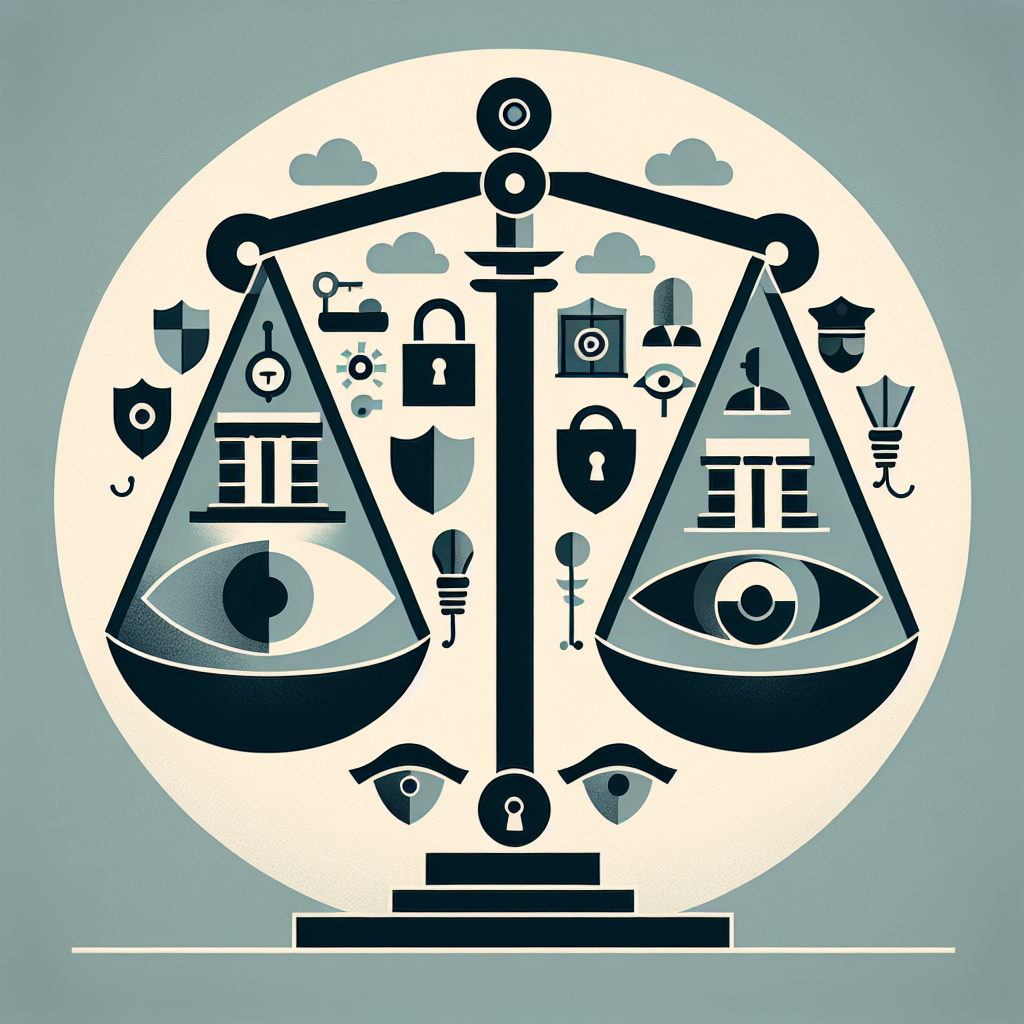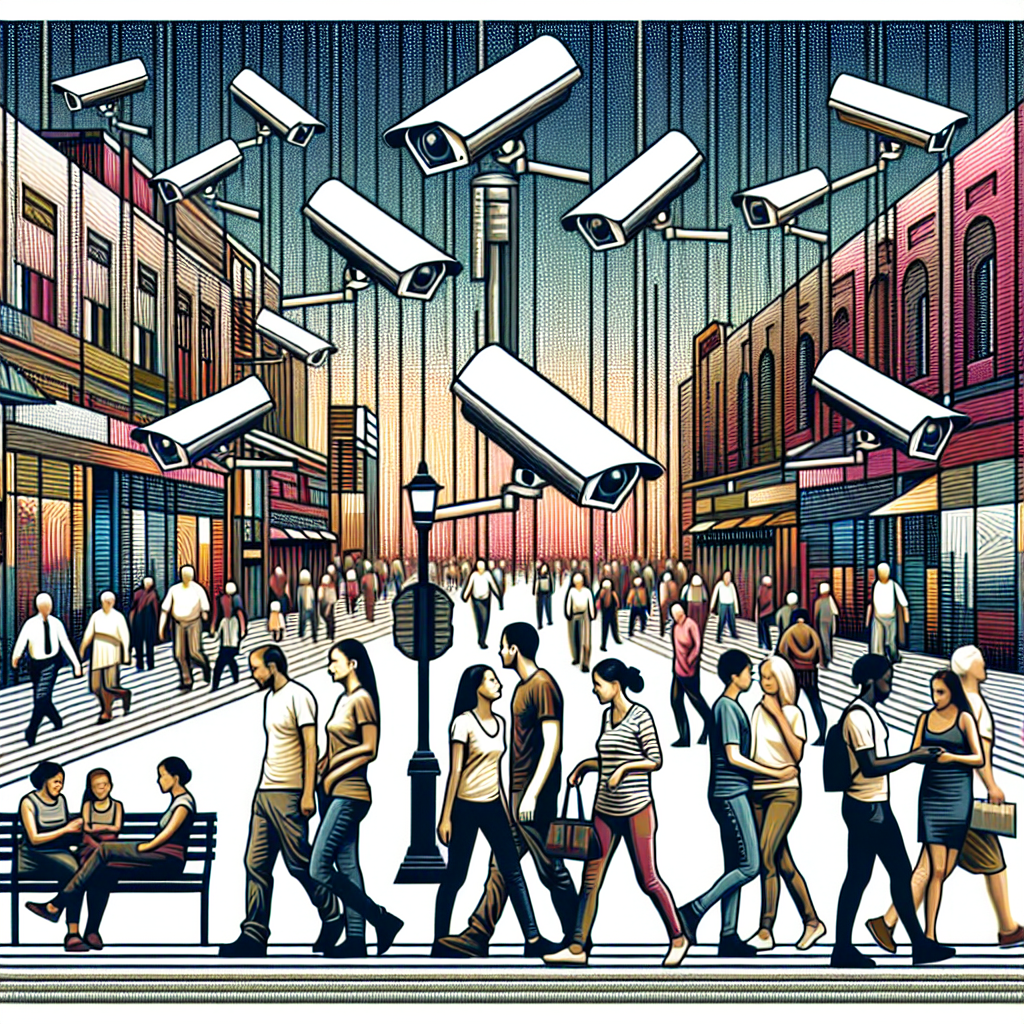The Ethics of Government Surveillance: Balancing Security and Privacy
Understanding Government Surveillance
Government surveillance is an intricate web of practices intended to monitor individuals or groups, typically to secure national safety, detect criminal activity, and prevent terrorism. Technologies such as digital communication monitoring, facial recognition, and data mining play significant roles in these efforts. As governments worldwide up their surveillance game, the ethical implications surrounding privacy become increasingly contentious.
Historical Context
Historically, surveillance has evolved from overt techniques, such as informants and physical monitoring, to advanced technological means including satellite imagery and algorithmic tracking. Landmark events, such as the September 11 attacks, have led governments to enhance surveillance capacities significantly, citing the need for heightened security. However, these actions have prompted serious ethical conversations regarding the invasive nature of surveillance.
Privacy as a Fundamental Right
Privacy is theoretically enshrined in numerous legal systems, often considered a fundamental human right. The United Nations’ Universal Declaration of Human Rights asserts that “no one shall be subjected to arbitrary interference with his privacy.” Ethical frameworks surrounding privacy argue that individuals should maintain control over their personal information. The concept of autonomy underscores the belief that individuals have a right to keep aspects of their lives private without undue governmental interference.
Security: A Justification for Surveillance
Proponents of surveillance argue that it is vital for national security. Governments assert that monitoring capabilities protect citizens from threats such as terrorism and organized crime. The argument is predicated on the notion that a secure environment allows individuals to enjoy their freedoms fully. However, the ethical dilemma arises when safeguarding national security comes at the cost of personal liberties and privacy rights.
The Slippery Slope of Surveillance
The “slippery slope” argument posits that what begins as surveillance for national security can quickly escalate into widespread monitoring of the general populace. Once the government establishes its authority to surveil, the potential for overreach looms. This raises questions about who is being surveilled, how the data is used, and whether the surveillance is truly justified.
Ethical Frameworks in Surveillance
Utilitarianism
Utilitarianism evaluates actions based on their consequences. In the context of surveillance, if government monitoring can be justified as preventing more harm than it causes, proponents might argue it complies with utilitarian principles. However, strict adherence to utilitarianism can overlook minority rights and lead to the justification of ethically questionable actions.
Deontological Ethics
In contrast, deontological ethics focuses on adherence to duties and rules. This perspective would argue that surveillance breaches fundamental rights, thereby rendering such actions ethically indefensible regardless of their potential benefits. Individuals should not be treated as mere means to an end, a principle violated by extensive surveillance acts.
Balancing Act between Security and Privacy
The challenge lies in finding a middle ground. A dual approach could be adopted where security measures are performed under stringent legal frameworks and oversight. Policies should stipulate clear limitations on the scope of surveillance, detailing the circumstances under which data collection can occur, thereby ensuring that the fundamental right to privacy is not overridden.
International Perspectives on Surveillance
Globally, perspectives on government surveillance vary significantly. Countries like China utilize pervasive surveillance as a tool for social control, often at the expense of personal freedom. In contrast, nations like the Netherlands promote privacy protection as a core value, pushing back against invasive government practices. Analyzing these disparate approaches enriches the understanding of ethical surveillance and emphasizes the need for globally accepted standards.
The Role of Technology
The convergence of technology and ethics invites deep investigation. Artificial Intelligence and big data analytics empower governments to collect and process immense amounts of information. While this can enhance security, it raises concerns regarding transparency. Algorithms can inadvertently perpetuate bias, leading to unethical surveillance of marginalized groups.
Need for Transparency and Accountability
Public trust is crucial for effective governance. Citizens are more likely to accept surveillance measures when there is transparency regarding their implementation and purpose. Legislation governing surveillance must advocate for accountability by ensuring independent oversight bodies can review practices. Public engagement in discussions surrounding surveillance policies also encourages democratic processes.
Advocacy for Stronger Regulations
Regulatory frameworks must evolve alongside technological advancements to protect civil liberties without compromising security. Modern laws such as the General Data Protection Regulation (GDPR) serve as blueprints for safeguarding privacy while permitting necessary security measures. Countries should consider adopting similar regulations promoting ethical boundaries in surveillance practices.
The Impact of Public Opinion
Public opinion significantly influences the ethical landscape of government surveillance. Societal attitudes toward privacy can shift based on events or media portrayal of security threats. Enhanced education on the ethical implications of surveillance can guide public discourse, leading to more informed opinions that better balance security needs with privacy rights.
The Student Perspective
The youth, being crucial stakeholders in privacy debates, express distinct viewpoints concerning surveillance. Awareness campaigns and programs in educational institutions can raise consciousness about privacy rights. Encouraging students to engage in activism fosters a generation that values personal freedoms and advocates against unethical surveillance measures.
Conclusion: Finding Common Ground
In navigating the ethical complexities of government surveillance, a balance must be sought that respects individual privacy while ensuring collective safety. As technology continues to advance and reshape the landscape, governments, technologists, and citizens alike must engage in ongoing discussions about the ethical parameters of surveillance. The pursuit of national security should not come at the expense of fundamental human rights. Exploration of shared values is essential for constructing an ethical surveillance framework that serves society’s best interests. Regular dialogue, transparency, and evolving regulations represent the path forward in this multifaceted debate surrounding the ethics of government surveillance.












Leave a Reply